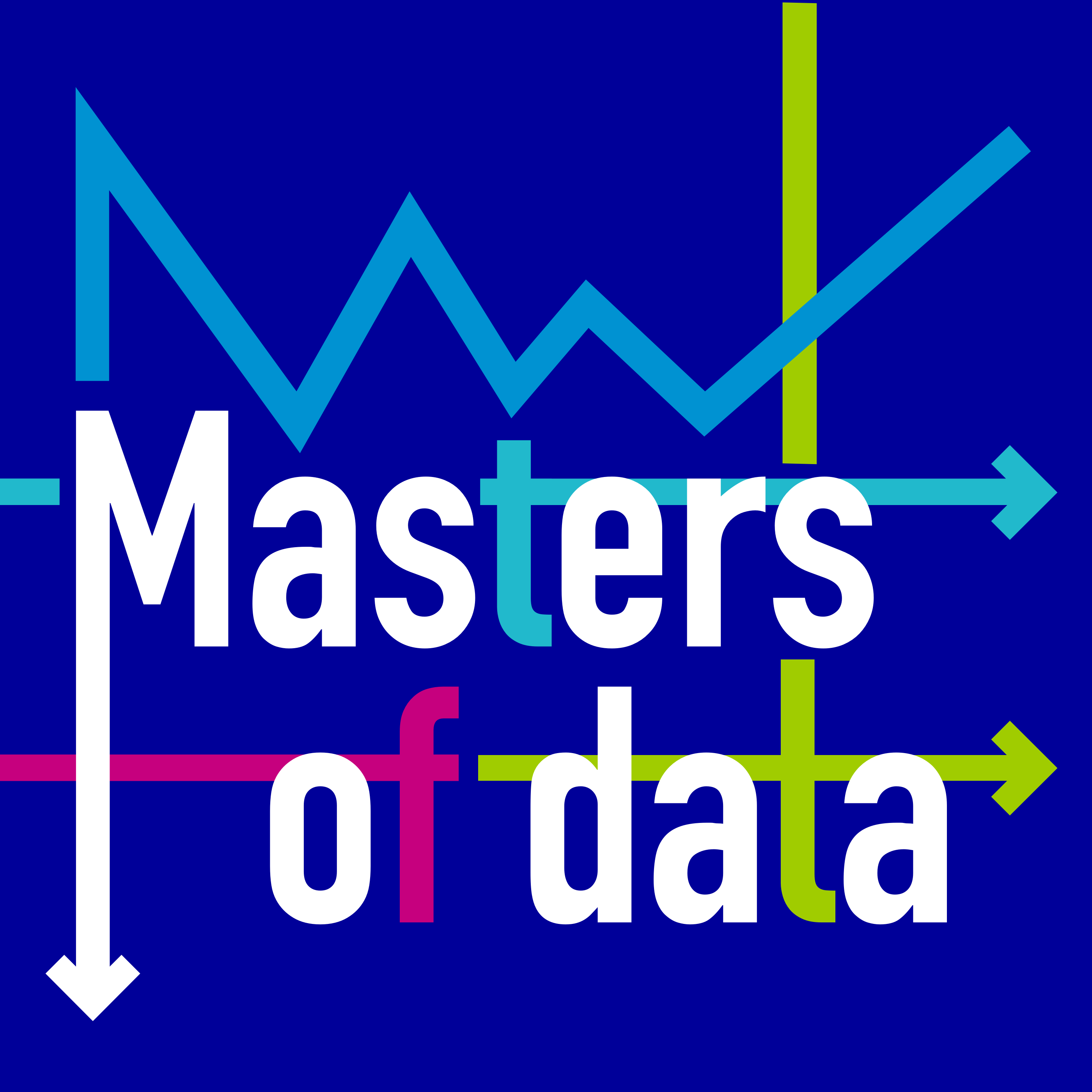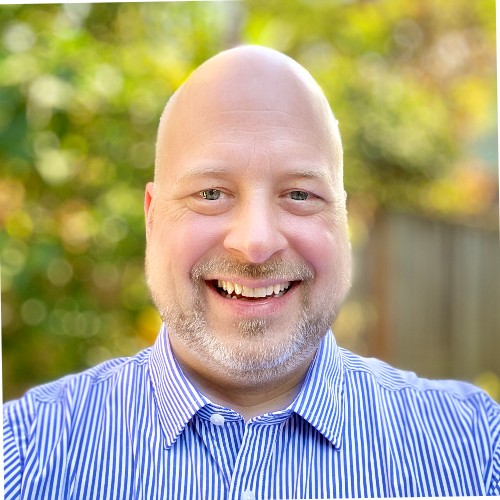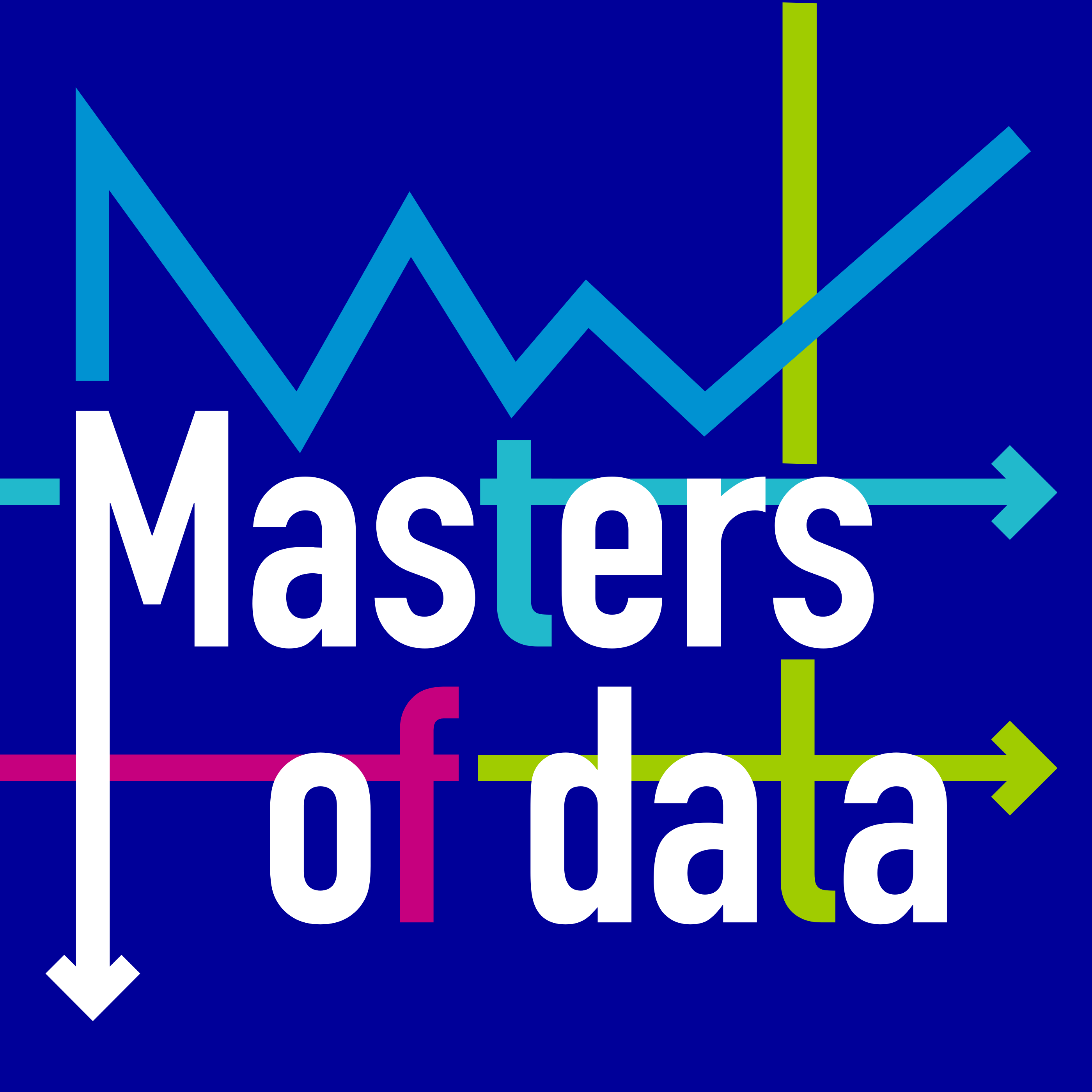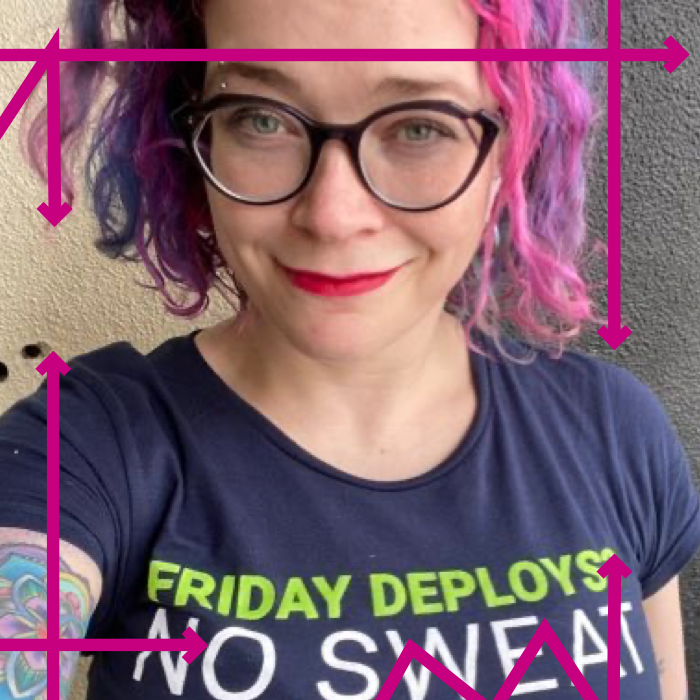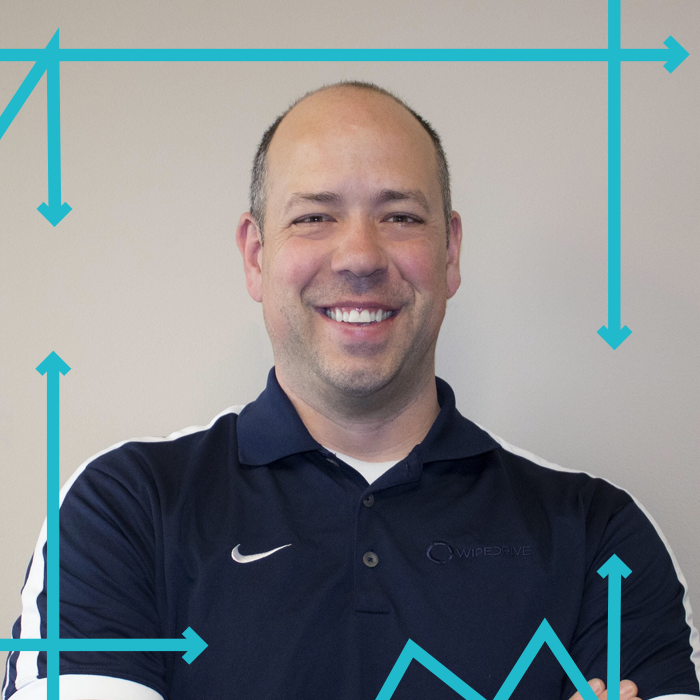Data, Democracy, and Politics (Guest: Carin Robinson)
- 0.5
- 1
- 1.25
- 1.5
- 1.75
- 2
[Music]
Ben Newton: Welcome to the Masters of Data podcast. The podcast where we talk about how data affects our businesses and our lives, and we talk to the people on the front lines of the data revolution and I’m your host Ben Newton. Our guest today works in political science. A field that might seem like it’s miles away from some of our other guests, but the reality is that data and data analytics has penetrated every element of our society, even politics. Carin Robinson, an associate professor of political science at Hooke College in Maryland, is an expert on today’s political system in the United States. We’re going to talk about how data is an essential part of today’s political campaigns and the implications for the future.
So, without any further ado, let’s dig in. Welcome to the Masters of Data podcast, and I am super excited today to have an old friend of mine, Carin Robinson is an associate professor of Political Science at Hooke College in Frederick Maryland and she agreed to come on and talk to us a little bit about politics and data. Thanks for coming on Carin.
Carin Robinson: I’m happy to be here Ben.
Ben Newton: I have to tell you I was super excited about this when you agreed because I’ve become a total politics nerd over the last couple years. I started listening to NPR Politics and listening to podcast, and it’s been an exciting few years I would say, right?
Carin Robinson: Oh, for sure. And there’s so many opportunities now to stay up to speed on what’s going on in interesting and fun ways, whether it be following the personalities in politics or following the numbers. There are many websites, and blogs and podcasts that I’m encouraging my students to pay attention to help them make sense of our current political environment.
Ben Newton: Yes, that’s the true. We’ll talking a little bit about that. So, I know you, but the listeners don’t. I’d love you to talk a bit about how you got to where you are. I know you grew up in Wisconsin, you went to George Washington University, got your PhD at Georgetown. Tell us a little bit more about why did you go into political science, what kind of took you that direction?
Carin Robinson: Well I never anticipated going into political science. In fact, I have vague memories as a child being annoyed when the State of the Union came on because it was interrupting me watching The Cosby Show on a Thursday night. So, I tripped upon it when I graduated from college in 2000 with a degree in communications and was qualified to get a job working as a journalist at a small newspaper, and I started covering local city council races and you know, I’m a 21-, 22-year-old and all of a sudden, I held a position of great importance in these small towns, and in the political process in those small towns. I started wanting to better understand the relationship that media have with politics and I wanted to look at it in a more objective analytical systematic way, so I applied to programs, ended up at George Washington University as you highlighted. Did a master’s in media and political theory there and then wanted to pursue a PhD which I did at Georgetown.
My focus really became political behavior, the larger picture. Not just in media but all the ways in which people are motivated to participate in politics and the ways in which they’re not motivated to participate in politics. So, some of my research looked particularly at citizens who have religious beliefs that motivate them to participate in politics, and I looked at the relationship between religion and politics in the 2000 election and have followed it ever since. So, I did a large survey experiment for my dissertation. I loved survey data and well at I’ve taught classes on US politics and I teach a class on elections every other year when we have a term where presidential race. I also teach the class on research methods.
I’m very passionate about people understanding politics through a systematic lens. We have a lot of people who have opinions about politics and opinions about our President and our Congress, and not very favorable opinions, but I love encouraging people to look at it in a systematic way that would help us evaluate things objectively, and not have these knee-jerk reactions based on our predispositions and our opinions that are not often founded on data itself. So, research methods the students don’t love it I sure do, because I think it helps refine how they process what’s going on in our world today.
Ben Newton: It makes a lot of sense. You kind of remind me of something that with the 2016 election, you know we both have younger kids and my daughter who was in kindergarten I guess at the time. I was in the kindergarten when Reagan was running against Carter, and I remember they came at our classroom they’re like, “Who do you want to vote for?” And I said, “Goofy.” That’s what my political weirdness was at that time. My daughter had a very specific opinion about who she should vote for and with your kids and with the students you teach, do you think the political awareness has changed in the last decade or?
Carin Robinson: Well it has because the sources of their political information have changed. And sure, their parents and their environment and social networks inform their understanding, but we’re also seeing a lot of satire, The Daily Show and various social media postings that tend to just emphasize everyone’s predispositions. So, what we’re finding is the opinions that people are espousing are ones that they have always had and then they seek out information that just confirms their predispositions. So, we’re not seeing a lot of grace and deliberation and refinement as people come to hold these attitudes. So, I’m careful with my own children to ask some questions and help train them how to think about it intelligently, deliberately, as opposed to just adopting some funny remark that they heard someone else say.
And we know there are so many funny remarks now of our leaders. I try to steer clear of that just because I think there’s an opportunity to look at this at a mature perspective. I want them to think of American politics in a way that will help them make sense of it 10 years from, now 20 years from now, when we’re looking at a different slate of representatives and Senators. Maybe not an entirely different given the likelihood being reelected these days and incumbency advantage, but there’ll be a different President, and there will be different issues and conversations that we’re having. So, I want them to have a framework that works for the long term and doesn’t just get them a laugh on their social media post.
Ben Newton: I like that. Maybe you’ll help me set up a correspondence course for my kids.
Carin Robinson: Right, okay. Well there you go. [Laughter] I’m not quite there yet. Still just focusing on the 18-, 19-year-old people in my class who need some work as well.
Ben Newton: Yes, I know. I think and everything you’re saying about the kind of echo chambers that we live in is astounding. And talking about the 2016 election I know you and I both remember the election in 2000 right it’s weird the way you kind of got into politics, and that seemed like a, that was a crazy time, but in this last election we got it so wrong. I mean the data just seemed completely off. So, being that you’re in the middle of this, how are you looking at… What’s changed in our understanding of the process in the last couple years?
Carin Robinson: Right. I think we’re just now starting to get our bearings on what happened, and I think it is going to take another cycle or two for us to feel more confident about correcting some errors that did take place. But, the 2016 election the polls were not as off as people want to think that they were, because we’re so consumed with the electoral college that we kind of lost sight of the fact that Hillary Clinton did win the popular vote by two percentage points. Most polls had her winning the popular vote by about three percentage points. They were off on average 0.9 % on the popular vote. And in most circumstances and other elections we wouldn’t bat an eye. We would have said they were spot on. “Good job pollsters,” but given the discrepancy between the electoral college vote and the popular vote this time, there is not much celebrating going on in terms of how accurate our pollsters were.
And to their credit, public opinion researchers, pollsters from newspapers, from the Academy, they have done a lot of evaluating about their processes that were in place. A couple things that they’ve concluded that I think are accurate conclusions and I think will help us moving forward really speak to the fact that we need to pay a lot more attention to the poll results at the state level. So, it wasn’t so much that national polls were off, it was that polls in Pennsylvania, Michigan and Wisconsin were off. And they were off by a pretty substantial degree, and why were they off?
Well, a couple things. One, it’s been noted I think the last couple years, how college educated citizens were much more likely to vote for Hillary Clinton than they were for Donald Trump. And that relationship, that correlation was more pronounced in 2016 than it was in previous cycles. So, we also know that in survey research, college educated citizens are much more likely to say, “Yes. I’ll respond to your survey.” So, they are over-represented in surveys, and there are weights that are used already to account for that. Because we knew that, we used weights to account for that, but in 2016 that college education meant a whole heck of a lot, and it meant you were super-duper more likely to vote for Clinton. So, because that weight, that variable wasn’t weighted properly, the polls were a bit skewed.
The other thing that the reflective pollsters and public opinion researchers have noted is that there are a chunk of voters who were undecided, about 13% I think on average, in those swing states. Pennsylvania, Michigan, Wisconsin and even Florida, there were a chunk of undecided voters. In past elections those undecided voters have evenly split and they just really haven’t been a game-changer that they ended up being in 2016. They swung to Trump in a large margin. In one state, I believe it was Florida, it went 30 points more for Trump than for Clinton, and so those late deciders also made also made the difference in these state polls that we could do prior to the election. Those polls said, “Well, Hillary Clinton’s got a good shot or she’s likely to win.” But had we taken a poll the morning of the election it might have tapped into those late deciders who ended up swinging for Trump.
So, those are the two big explanations that I think there’s a lot of enthusiasm for. There was some speculation about a shy Trump voter effect. That there were voters that just didn’t want to admit they were going to vote for Trump because of social desirability bias, but there isn’t a lot of evidence for that right now. So, I think moving forward we’re going to pay more attention to polls done at the state level. The interesting conundrum there is that we rely on the media industry for these polls, and with the decline of local newspapers and even state news media, we are not going to have access to some good polling done at the state level. So, it’ll be interesting to see how that can be corrected in the future.
Ben Newton: Well I have a question for you Carin about that too. I was reading an article I think it was in The New York Times the other day, that there was there was also a lot of people questioning the efficacy of these exit polls, and that maybe those were skewed as well. That maybe they over skewed a certain age group or something like that.
Carin Robinson: Yes, the exit polls are interesting. They’re done by Edison Research. That’s one company that most media sources then subscribe to and rely on. And they are brainstorming how this can be done differently, even maybe distributing some website that people can go home and log into, and fill out, and doing the exit polls, not relying on face-to-face conversations immediately as people leave the voting booth. So, I think that’ll be reexamined as well.
Ben Newton: Oh, interesting. Well, I mean as part of that, the kind of transition, another thing I definitely wanted to ask you about. I remember something that struck me… Now that seems like ancient history, but when Obama was first elected, and it seemed to be like data look a much more prominent part in that campaign. If I remember right didn’t he have a CTO or something on the campaign? It did seem like that was a bigger part of the whole process. So, talk to me a little bit about how you see data being part of these campaigns today and how they’re dealing with it.
Carin Robinson: Right, and for someone who loves numbers, this is exciting. Numbers have always been part of the story but what’s exciting about right now is that everybody wants to talk about the numbers, and we’re fascinated about this process. I think we’re longing to bring some concreteness to a world that has become a bit unhinged when we’re caught up in Twitter and random posts, and the sagas and the dramas that are going on behind the scenes. I think we’d love to have these numbers to really talk systematically and quantitatively about politics today. So, yes. President Obama is credited with really ushering in data analytics to campaigns. Data has always been around, but that campaign really did hire some key quantitative strategists that helped solidify data analytics in campaigns today.
It’s interesting to compare just access to email addresses that John Kerry had as the Democratic presidential nominee in 2004, with the number of email addresses that President Obama had in ‘08 and 2012. So, John Kerry had 3 million email addresses of people who were going to support him, who he could send emails to, and contact. So, that was three million in 2004. President Obama had 13 million in 2008 and 20 million in 2012. So, that’s just a pretty recap of how dramatically the landscape has changed. Data analytics, key part of campaigns today, but as I said we’ve always been interested in in running campaigns that are efficient. That are cost efficient, that are resource effective. And so states, since the Constitution was written, have had a large say over how elections were conducted, and for quite some time they have always collected information about who registers to vote and who votes.
So, they don’t keep a record of who we vote for, but they keep a record of who votes and who doesn’t vote. Now, those records were for quite some time done on paper. There was not great reliability over how those were kept, but when we had the election of 2000 in which Bush v Gore brought to light all the inadequacies of our voting structure and our voting systems, and the variability across states, and the inconsistencies of how many people we thought had voted, and then how many votes were actually cast. Congress got involved. They passed the Help America Vote Act of 2012, and that really streamlined voting records, and it actually required states to keep digital records of who voted, who’s registered to vote, the names and addresses of those people, and in some cases contact information, in some case are you male or female.
So, that is required by law. For political scientists that’s exciting, to know that there is that data available. So, all of a sudden, those sources of data well, became much more reliable. Now states have the option of how accessible they want that data to be. So, in some states it might cost you two dollars to access to that data, in other states it costs thousands of dollars, and you have to be a candidate, or you have to be a representative from the state party. So, there’s great variance as to how accessible that data is, but in theory it’s publicly available. And so that really, with Help America Vote Act in 2002, that ushered in access to these voter lists, and we call them voter files.
What’s happened is not only are we getting that information from secretaries of states, but we’re then combining that with other data. So, the census, also freely and publicly available, can be added to your voter files. And now, we’re working with—and by “we,” I should just say the Academy—but also campaigns are working with consumer organizations, and commercial firms that are adding to that data with all sorts of consumer behavior, credit scores, home ownership. So, these files are just getting huge.
Ben Newton: I think I had heard a little bit about that Carin, but that actually sounds a little scary. So now they are looking at my credit score, and my credit card purchase history to determine who I’m going to vote for.
Carin Robinson: Right, right. There’s a big question over privacy. I think it’s kind of ironic because you do see some candidates, thinking of Ted Cruz here in 2016, running for the Republican nomination. You see candidates such as Ted Cruz who are concerned with government intrusion and privacy issues, but then he was noted for using some pretty big data files that have a lot of information. Yet he justifies that in the name of wanting to run an efficient campaign and contact who he thinks he should contact.
So, privacy is a big question here, but there’s a lot of data out there and I highlighted the sources of the data, but I failed to mention that citizens themselves are making their own data available as soon as you offer your email address to a campaign, or to some partisan group entity they have you. They have access to a lot of things just by virtue of having your email address. So, we are at fault as well for giving information about our allegiances and our associations via our email addresses, and if we like them on Facebook and all those sorts of things that are now rampant in our social media age.
Ben Newton: So, does that mean, just make sure I understand Carin, so that means that for example, let’s say I sign up for some campaign email list, or some cause I’m interested in and they have my email. So, they use that then to connect me to other databases they have. Is that what you mean?
Carin Robinson: That’s what I have been reading about. I’ve not worked on the campaign directly so I’m trying to keep up with the pace of this world as well. But my understanding is that the email is a goldmine for any association that that email has with other organizations. That they can start tracking where that email pops up, and that helps them build a profile as to who you are, what you like, what kind of messages might appeal to you, how likely you are to donate money, how likely you are to volunteer for them. They build a profile and they try to make sense of who you are to know whether or not you are worth their time.
Ben Newton: When you and I were prepping for this one, you sent me this term which I love. The psychographic micro targeting. It sounds like something out of a spy thriller.
Carin Robinson: I wrote it in big letters so I would make sure I spoke of it accurately because I botch it all the time. Psychographic micro targeting. I say micro targeting for short.
Ben Newton: So, tell me, because when I heard that I was thinking of something like psychographically micro targeting with extreme prejudice. Something I would hear in a spy movie, but what does it actually mean?
Carin Robinson: Okay. So, what it means is that in campaigns today, now not all campaigns, but there is some interest by some candidates and some parties to get into the nitty-gritty of citizens and who they are. And as I was alluding to earlier, campaign is interested in whether or not they can persuade you, and if they should attempt to persuade you. To that end, they want to know are you an agreeable person, are you a neurotic person, are you very open and engaging, are you an extrovert, are you an introvert? And all sorts of things that define your personality. And then using that information, and that information is gleaned by your purchasing behavior, and what groups you belong to and what magazines you subscribe to.
Using that information, they then decide should they contact you, should they send you this kind of persuasive direct mail, should they send you that type of persuasive direct mail? So, there was a lot of media coverage on the Ted Cruz campaign, because he in the primary race in 2016, he did hire Cambridge Analytica to help him conduct this psychographic micro targeting. And so examples of him using it, one such example was him, if there was sample was him if there was an individual who was known to be fairly neurotic, fairly fearful, a campaign would then run an ad featuring a home burglary and have it include a message about being pro-gun, and gun rights, and the candidate being in favor of the second amendment. So, that would be a uniquely tailored message that would be then sent to this person who the campaign knew was slightly neurotic, and their thinking was this is going to be more effective in earning this person’s vote, or in encouraging them to volunteer.
Now similarly, if you find someone who’s very agreeable, they would maybe respond better to an ad that emphasized family values, and they would be quite turned off by some ad that featured a gun and a home burglary. So, there’s a lot of work now being done as to the effectiveness of this, does this really matter? And there’s not a ton of evidence to suggest that this gets you much further than a more generic voter file would. So, this person is neurotic, so this person is agreeable. What matters more is simply, does person vote on a regular basis, and are they Republican or Democrat. So, we don’t really know if all this is adding a whole bunch more to the story, but it’s being attempted. Now, Ted Cruz did not win the Republican nomination in 2016 so at the very least that sample size of one doesn’t seem to suggest that this is absolutely necessary to win a campaign. But some people are pursuing the effort to really zero in on certain personality types and market messages in such a way to appeal only to those personality types.
Ben Newton: The way you describe it definitely not coming from the political science academia myself, it does sound remarkably like the kind of marketing efforts that you’re seeing in large internet companies, particularly what Facebook has been doing, and there are other companies out there that are doing that. Where they’re basically micro targeting me with ads and that’s basically what they propose to advertisers out there, and I guess just like with Obama’s election where they were bringing in social media that had been effective in other ways and they were able to show that social media was effective for campaigns. I guess it shouldn’t be that surprising that we would try this in political campaigns, because it’s been so successful for no commercial advertisers, right?
Carin Robinson: Right. And then as an academic, as a political scientist question is, “Well, so what is this? So, we can do this, so it works in that arena. Does it really work in our arena, is it worthwhile?” and I just think the jury’s still out on that. As the data continues to increase an increase, and consumers and citizens provide that data by making our social media profiles so public, at the end of the day it’s still about, “Is this person going to go and vote, and what drives that vote choice?” And oftentimes it is just as simple as, “Are they Republican or Democrat and do they vote?” Because we find that we don’t often get people who vote in one election and don’t vote in the next, and maybe vote in the next. It’s, we have people who vote all the time, or we have people who don’t vote at all.
There’s not a large group of people that sit in the middle, and campaigns try to muster a few of those people who sit in the middle, because sometimes those people are the people who end up determining the election result, but I don’t know if we’re really tapping into something that profound by being able to analyze our potential voters to this extent. And of course, there’s privacy concerns involved as well. I also think there’s a risk in profiling someone, labeling them as an agreeable person, or a neurotic person, or an extrovert, or a conscientious person, and then forming an ad, targeting them with that ad, and it totally having a boomerang effect and not accomplishing what you wanted to accomplish. I don’t think citizens enjoy being pandered to. Again, I think more research needs to be done for us to know if this is absolutely necessary and effective, and of course there’s the philosophical question of if this is good for our system of government.
Ben Newton: Part of what you’re saying, it seems like this is part of talking about kind of tribalism. Is that we tend to exist in tribes, and we tend to have, those tribes can have opinions. I know there’s been a lot of news about this being so different, but I really actually enjoyed reading Truman’s biography about a few months ago. And then there were things in there about Truman and Eisenhower, and about they essentially to a large degree, it seems like they picked their parties based on their families. And like, “Well everybody here we’re Democrats.” “Everybody here we’re Republicans.” And even further back you think like that it doesn’t seem like this kind of tribalism is necessary. It’s not a new thing. This is way we operate.
Carin Robinson: No, it’s not. In fact, when I applied to graduate school I wrote in my statement of purpose which kind of encompasses what you want to pursue research wise. I looked back at Madison’s campaigns back in the day and looked at how he went after certain religious citizens, because he was a member of a particular church and he wanted to mobilize the citizens of the church that he belonged to, and how I was doing this in the early 2000s applying to graduate school. I’m like look, “We thought George W Bush, and even Al Gore, they were speaking of their faith in such a strategic way, and oh this isn’t great.” But from the dawn of time, people have been tapping into these social identities to mobilize citizens.
Yes, tribalism, I know for some that was the word of the year in 2016, I believe. Because it really does govern so much of our political behavior. So, the fact that we know what Republicans or Democrats, where they eat, where they shop, what they like to buy, what celebrities they like, what soda they like to drink, all sorts of things that we now know to be true and to be different given if you’re Republican or a Democrat, it has kind of come with these communities that have formed and this team mentality of winning and losing. We definitely saw a lot of that with President Trump, then candidate Trump’s rhetoric in the 2016 campaign. He really did promote an us-versus-them rhetoric which some were fans of some were not fans of, but it was consistent with this notion of social identity kind of governing how we approach politics. And, what we’re looking for in a candidate is really an affirmation of what we think to be true about our social identity.
Ben Newton: I have to go back to something you said. So, you seriously telling me that Republicans and Democrats drink different sodas?
Carin Robinson: They totally do, and I wish I had the data on that. [Laughter] No, it’s really funny, and I know it’s out there so people listening please google it. What cars they like to buy, what consoles do they prefer Wii or PlayStation? There are distinct differences, because with those choices come a host of other things. Its socioeconomic status, it’s your race, in some cases some of these purchases are driven by your age. So, you can connect all sorts of dots and see that it’s not so much that this group likes Dr. Pepper and this group likes Pepsi, it’s that the cultures that they’re in, be a rural, urban be it if you’re in Wisconsin or if you’re in New York City, there’s a host of things that are connected to those consumer choices.
Ben Newton: And those cultures like certain things
Carin Robinson: Yes, yes. It’s kind of fun to highlight that, and to put yourself into those lists, and see, “Oh yes. I guess that is what I am, because I like that soda and I think that brand of coffee,” and all sorts of things like that. So, yes, there are differences that are that mundane, but seem to really register as being quite accurate description of the two-party partisan identities.
Ben Newton: I always love stuff like that. I think it’s interesting. So, one of the reasons why I honestly kind of overdosed on political commentary for a while last year, and I kind of had to take a break, but now we’re going into the midterms and it’s getting interesting again. So, you being in the middle of this, what are you kind of seeing different, what are you looking at in the midterms from like your academic perspective?
Carin Robinson: Okay. So, I am teaching campaigns and elections in the fall. So, I am monitoring some of these primary races to see what strategies are employed, if we do see more of the micro targeting efforts, or if we’re seeing more traditional efforts to just simply get out the vote. I just wanted to highlight one thing that I took note of last week. There was a gubernatorial primary race in the state of Georgia, and the woman who won Stacey Abrams, she is running using a unique strategy of really targeting black voters. So, she rightly noted that about 1 million black voters did not vote in the 2016 election, and we do know that there was a lower turnout amongst demographic groups that we thought were going to turnout for Hillary Clinton, than there was higher turnout for groups that would favor for Trump in 2016.
So, she’s really making it her mission to turn out these black voters, and really banking her campaign on it. So, it’s a unique strategy because her opponent in the primary really want to appeal to the more moderate center, and try to make a case that in a red state like Georgia you need to appeal to some Republican voters, and Stacey Abrams is asserting that maybe not. Maybe you just turn out your base and that could work so I’m monitoring that. And I also think this midterm election, and I think future elections are going to reaffirm that even with all the data that we have access to there’s still the nuts and bolts of campaign work that we’re never going to escape. There is always going to be door-knocking, there’s always going to be phone calls, there’s always going to be rallies, there’s always going to be volunteers holding signs, and putting signs on there in their front yard, or bumper stickers on the car.
So, I think as much as observers of political campaigns are getting excited about data analytics and where the future is, and how the field is kind of changing, I think we still need people who are going to be walking and talking that campaign work. So, while I expect to see in the midterm some unique and different strategies, I think given 2016 results nothing is taken for granted. So, I think Democrats in particular, we’re going to see some variation as to how they attempt to make sense of this electorate, to make sense of the blue-collar voters who swung to Trump, how are they going to be drawn back into the Democratic Party. Those are some questions that I think the midterms might help us answer. We shall see, and we’ll see if there’s the Democratic wave that people are expecting. I think there’s a lot of time left on the calendar for things to change, so I’m looking forward to it.
Ben Newton: Actually, you reminded me when you were when you were talking there was a, I think I believe it was on NPR, there was some piece about a woman running for Congress I believe right there in Montgomery County where you live. She was targeting, like she was going up to one door and knocking talking to them and not another, and it was based off of even this very basic data.
Carin Robinson: Oh, it is. That’s what I mean. So, before we had access to the digital databases from the states following Help America Vote Act, we had very crude data, and many campaigns used a simple scale of 0-4, and that represented in the last four elections, how many times has this person voted? Are they four, are they three, have they voted two times, have they voted zero times? And so that was all were running on, and the fact was the person a registered Republican, or registered Democrat? And that alone would tell a campaign do we knock on these doors, do we knock on those doors?
Because you don’t need to waste your time on people who have voted in the last four elections for the opposite party, and you might not even need to spend a lot of time on the people who voted in the last four elections for your party. You might want to spend some time on the people who voted in the last two or three elections for your party, and you might even want to spend some time on the people who voted in the last four elections, but they split their vote, and sometimes they voted for your party and sometimes the other party. So those are two very simple variables that really tell you a whole heck of a lot as to if that person is worth the campaign’s time.
Ben Newton: It’s fascinating. It all comes together. You can’t get away from the fact that it’s still people. You may use the data to guide you there, but it’s still people talking to people voting for people.
Carin Robinson: And these are people who change their minds. I think of the people who some calamity strikes their family, I think of a die-hard Republican who all of a sudden has some medical condition that really, really needed Obamacare, right. And so all the data points might have pointed to the fact that that individual would have voted for Trump or for or for Romney in 2012, but yet that health event may have pushed them to the other side. So, we don’t want to oversimplify the world, we don’t want to oversimplify a person.
Ben Newton: Yes. I know, absolutely. Carin, maybe we’ll reconnect after the midterms to get your view on how that all went through.
Carin Robinson: Yes. Give me a couple of days because couldn’t really talk to the 2016 election, because everything I’d been teaching the two months before just went out the window, and I had to regroup and my students had to regroup. So, then that speaks nothing of my partisanship, it just speaks to the fact that academically speaking I never would have expected us to elect someone with the lack of experience, with the three marriages, with all sorts of things that traditionally have meant the person is not a very viable candidate.
Ben Newton: Well if nothing else is going to generate lots of work for you in the next couple years, right.
Carin Robinson: Right.
Ben Newton: Lots of things to look at. Well, Carin, I really appreciate you taking the time to come on with me. This has been a great discussion. I’m sure everybody listening enjoyed it, and I look forward to bringing you on the show again maybe a little bit later in the year next year.
Carin Robinson: Sounds good, Ben. I enjoyed talking with you.
Ben Newton: Hey thanks again.
Female: Masters of Data is brought to you by Sumo Logic. Sumo Logic is a cloud native machine data analytics platform, delivering real time continuous intelligence as a service to build, run, and secure modern applications Sumo Logic powers the people who power modern business. For more information go to www.sumologic.com.
DESCRIPTION
Our guest today works in Political Science - a field that might seem like it is miles away from some of our other guests. But the reality is that data, and data analytics, has penetrated every element of our society - even politics. Carin Robinson, an Associate Professor of Political Science at Hood College in Maryland, is an expert on today’s political system in the United States. We are going talk about how data is an essential part of today’s political campaigns and the implications for the future.
